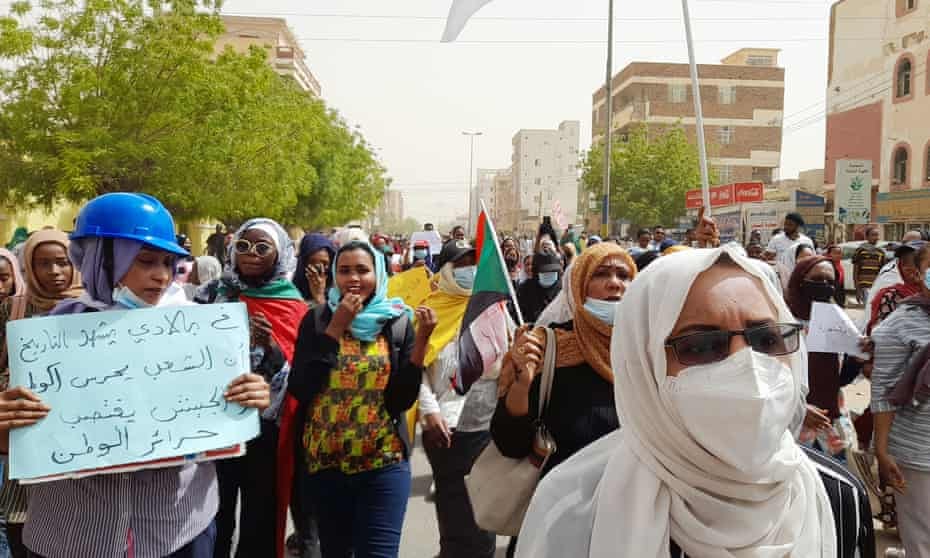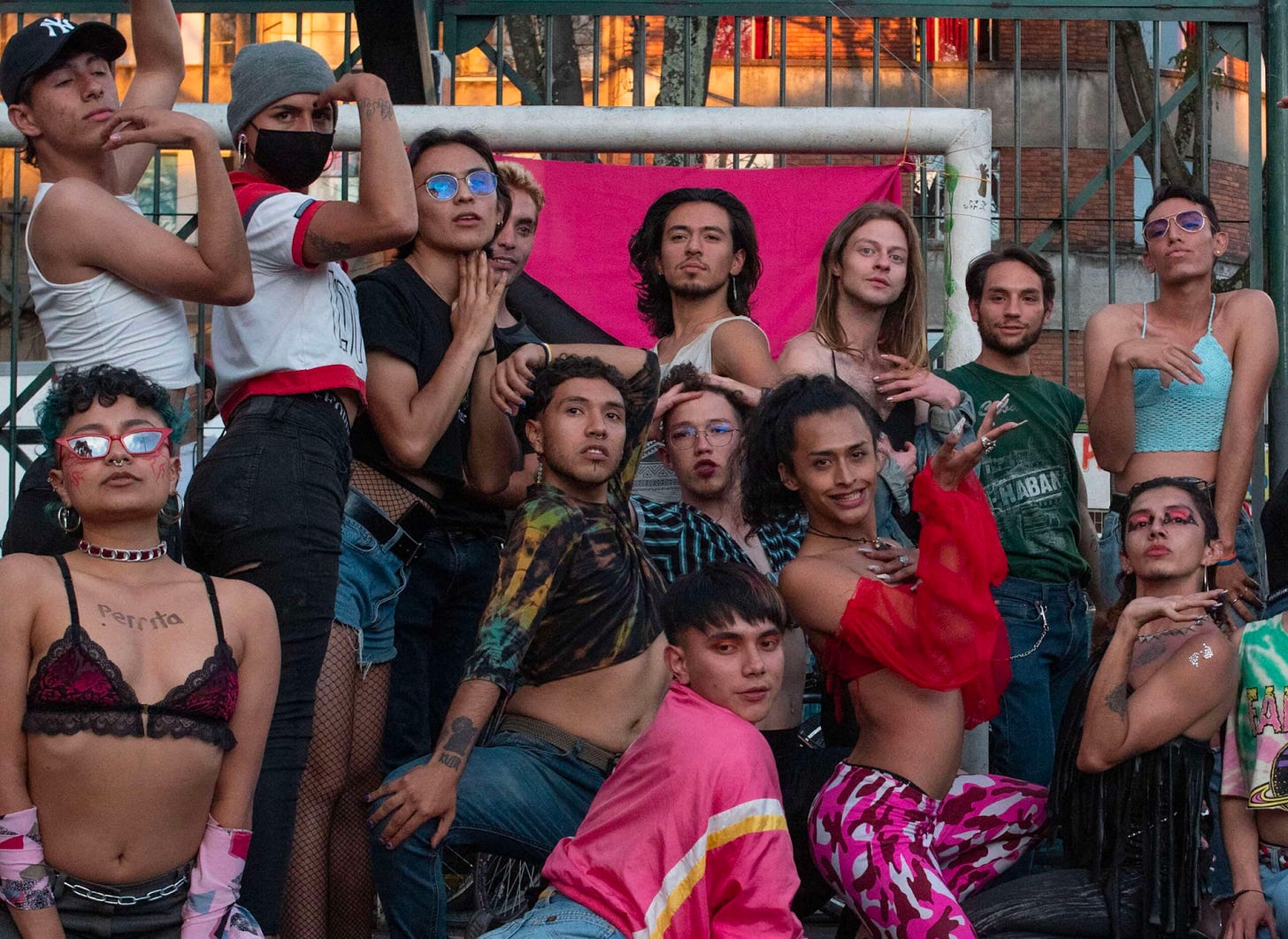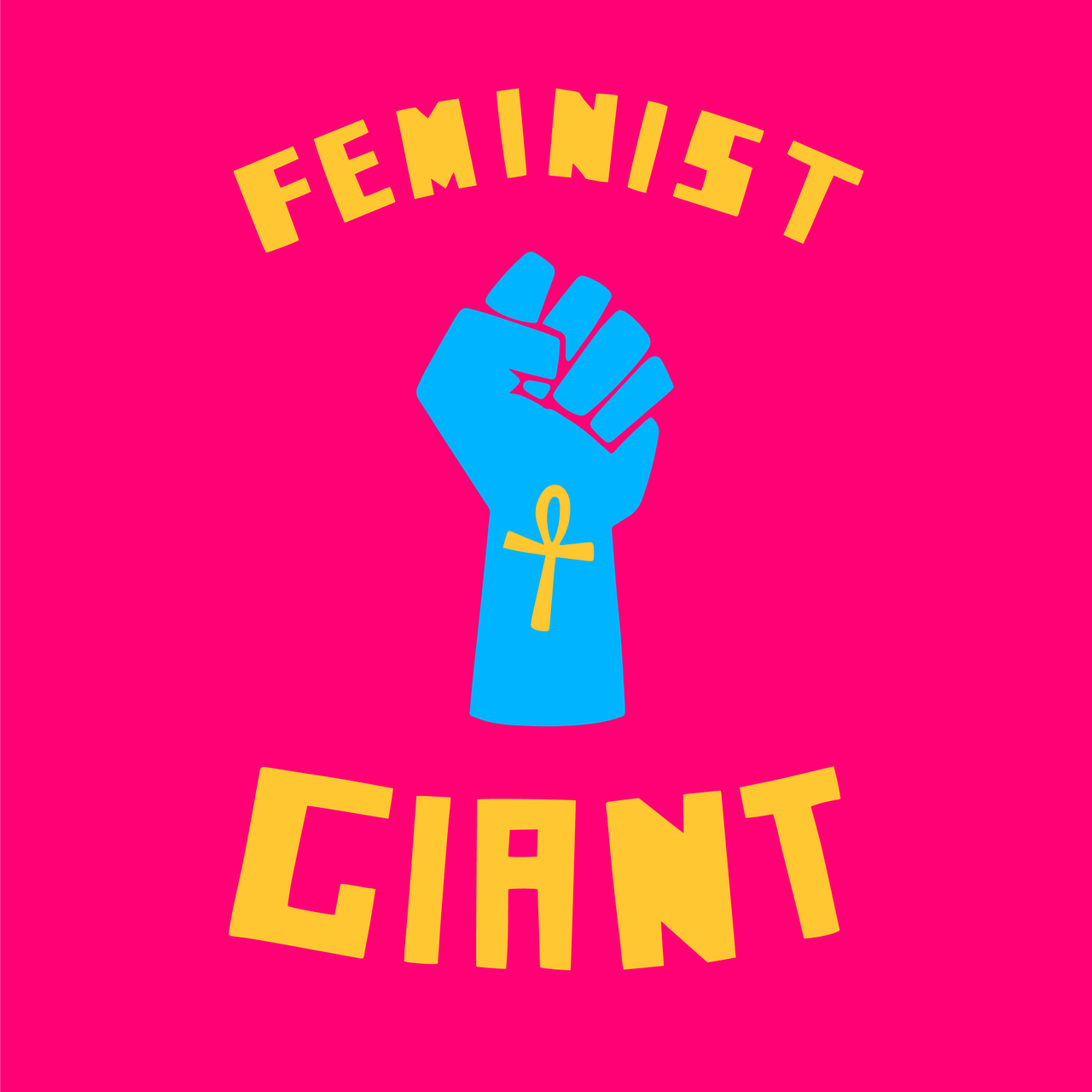Global Roundup: Protests in Sudan After Alleged Gang Rape of Woman by Security Forces, Colombia 1st Latin American Country to Legally Recognize Non-Binary people, Arab Women Artists Embrace NFTs
Curated by FG intern Jana Kortam
People protest against the alleged gang-rape of a teenager in Khartoum, Sudan, 15 Mar 2022. Photograph: APAImages/Rex/Shutterstock via The Guardian
TW: sexual violence
Demonstrations took place across Sudan on Tuesday in protest at the alleged gang-rape of a teenager by security forces. The 18-year-old said she was attacked in Khartoum on Monday by up to nine men dressed in the uniforms of the security forces who are charged with dispersing regular protests held across Sudan since October’s military coup.
The woman said she was traveling home when the police officers stopped the minibus she was riding, looking for people who had been involved in that day’s protests. She said that the officers fired teargas inside the bus and when she tried to get off, they raped and beat her.
Sulaima Ishaq, the head of the violence against women unit at Sudan’s Social Development Ministry, said a number of sexual assaults on women and men had been reported near the place the young woman was attacked in recent weeks. She said that the woman was not a protester.
(Security forces) have been increasingly using this tactic to decrease people’s movements on the streets. That’s a well-known oppressive policy in our country…it is not the first time that they have been doing this and it won’t be the last time…We have a history of using women’s bodies, whether it’s in Darfur or at the dispersal of the sit-in in 2019 or at the protests. The security apparatus use rape as part of their work. - Sulaima Ishaq
Last December, a UN report said there were 13 allegations of rape and gang-rape following an attempted sit-in, which was dispersed in central Khartoum.
In resistance on Tuesday, women and girls marched on the streets of Khartoum, Omdurman, as well as three cities in South Darfur, some carrying signs that read: “They will not break you”, “We will not be broken.” and “Wars are not fought on women’s bodies.”
In the capital, Khartoum, the government closed bridges to stop protesters from reaching the presidential palace.
Protestor Shahinaz Jamal said she couldn’t sleep after hearing about the assault.
Not only me, all the revolutionaries in my area. Nobody managed to sleep. We are so outraged. They think that they can stop women from going outside by doing this. But that will never happen. We are not afraid of them. We are out today to tell them that women’s bodies are not the space of the battles. - Shahinaz Jamal
Over 80 people have been killed and hundreds injured during protests against the October 25 coup. The latest incident is being investigated by police. However, to no one’s surprise, the police did not respond to requests for comments and the resistance continues.
Members of the trans and non-binary community in Bogota, Colombia gather in 2021 prior to a Pride dance. Credit: Juana Miyer/Long Visual Press/Abacapress.com via Xtra
The Constitutional Court was considering the case of a 40-year-old Colombian who was assigned male at birth, began a gender transition at the age of 20, and in 2015 changed their name to Dani García. The court ruled that the National Registry of Civil Status discriminated against García by forbidding her from fully correcting her gender on her citizenship card, which is used for everything ranging from voting to job applications.
Although García was finally able to update her legal gender marker in 2015 after the Constitutional Court allowed trans people to amend their ID cards for the first time, she found the only options available were the “M” and “F” that push the binary. García uses female pronouns but does not identify as a woman, according to Human Rights Watch (HRW). She uses the term travesti to describe her relationship to gender.
The National Registry of Civil Status rejected García’s request to use “X” gender marker in 2019, García filed an appeal last year seeking to repeal the decision.
In its most recent ruling, the Constitutional Court said that restricting access to Colombian's ID cards that correctly recognize the identities of non-binary people is extremely harmful to both their mental health and ability to function in society. Judges accused federal bureaucrats of encouraging “scenarios of discrimination and exclusion in the public and private spheres.”
The court’s decision is a first for Latin America, Human Rights Watch said. Cristian González Cabrera, a researcher in its LGBTQ2S+ rights program, encouraged other countries in the region to join in “legally recognizing gender diversity through simple, administrative procedures.”
Not only is it required by international law, but it will also go a long way to fostering equality, tolerance, and inclusion for all. - Cristian González Cabrera, Human Rights Watch
While the Colombian Constitutional Court is the highest legal authority in the region to recognize non-binary identities, other lower courts have also ruled in favour of affirming documentation for individuals who live outside the binary. In February, Mexico issued its first-ever non-binary birth certificate following a petition filed on behalf of plaintiff Fausto Martínez, but that historic decision only applied to their case. Other non-binary people will be forced to lobby the court in hopes of receiving corrected ID documents, and those requests may not necessarily be granted.
A character from the Beyond Power NFT collection by Raya Oklah. Photo: Raya Oklah via The National
The Kuwaiti artist’s work is deemed provocative, as it portrays sociopolitical issues as well as taboos that challenge religious norms, notions of piety in public and private spaces, and the impact of globalization, resulting in the censoring of her work throughout her career.
This struggle is exactly what pushed her to seek out a world with no creative censorship and delve into NFTs.
The idea of creating art that could not be censored was enticing for Amin, as her work often exposes taboos and paradoxes that exist within modern-day South West Asian and North African societies. In 2012, she held an exhibition “It's a Man's World” in Kuwait City was shut down within three hours for its "inappropriate" content. The content portrayed Arab men living double lives. The exhibition was her first to be closed down, despite it following a similar collection called Society Girls, which portrayed the hidden lives of Arab women.
The shutdown of It's a Man's World, destroyed Amin's morale.
It was traumatizing, I stayed in bed for days…It was almost like they were telling me 'How dare you, an Arab Muslim woman, speak out about the patriarchy?' - Shurooq Amin
In 2013, as resistance to the backlash, Amin created the Popcornographic series, a 15-piece collection that explores the social taboos and conventional perceptions of being a Muslim Arab woman. The name was inspired by an innocent comment her daughter made when asking about why her artwork was being criticized.
“As soon as I heard my daughter ask me why people are saying my work is popcornographic, something clicked inside my head. I knew exactly what I had to do.” Amin described the accidental wordplay on the word pornographic.
Fast forward a few years and many canceled shows later, Amin has compiled all her previously banned work into one NFT collection named Popcornographics.
In this space, I can create without the fear of being silenced…It’s my way of putting my art out without any restrictions. - Shurooq Amin
Beyond Power was founded by Raya Oklah, 29, a UI/UX designer from Jordan who quit her job and has been working with NFTs full-time for the past five months. It is compromised of a collection of about 10,000 illustrations or characters of women from different cultures and backgrounds, highlighting representation and diversity.
She started by creating a few characters and later hired a team of designers to help her grow the collection. The Beyond Power collection, which is scheduled to launch in April, encompasses female characters wearing sunglasses with various empowering words on them.
Powerful, fierce, hustler and more…these words are meant to serve as affirmations…We want every woman to look at our NFTs and see themselves in those characters…Because they are powerful, they are capable and they are going to make a change in this revolutionary space. - Raya Oklah
Despite being intangible, some NFT art pieces leave a discernible mark.
A great example is the work of Nour Hage, a Lebanese fashion designer who stepped foot into the world of digital art in early 2021.
Her very first NFTs included portraits of three of the Arab world’s most powerful historic female figures: ancient Egyptian queen Nefertiti; Dido, the founder, and queen of Carthage, a Phoenician city-state located in modern Tunisia; and Zenobia, queen of the Palmyrene Empire, located in modern Syria, all of which sold within 24 hours.
My artwork, in general, is focused on documentation of experiences and transmission of memory from one generation to another, and this collection was no different. - Nour Hage
Jana Kortam (she/they) is a sociology and feminist and gender studies student at the University of Ottawa. They are experienced at advocating against gender-based inequality especially in the SWANA community. They are actively engaging with intersectional feminist ideologies in order to radically smash the patriarchal supremacist society.
She believes that in order to be able to achieve justice, we must offer a microphone for minority voices unheard rather than narrate their stories for them.





